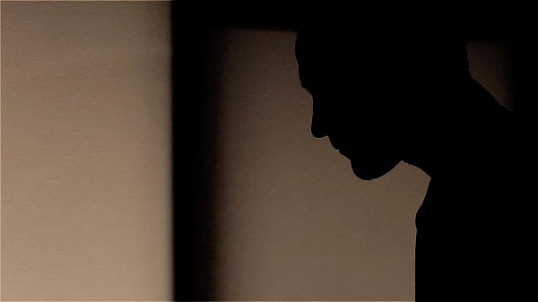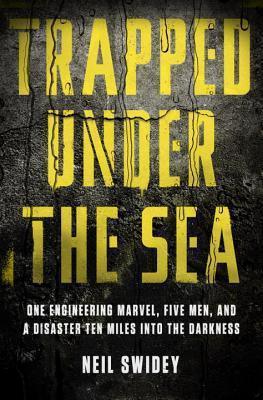Richard Mansel's Blog, page 7
August 21, 2014
Offering Hope for Broken People
When we take the gospel to the world, we will encounter broken people. They are everywhere and they need help. It would certainly be easier to only deal with happy, positive people. But by doing so, we would betray God’s mission (Matthew 28:18-20).
Award-winning writer Joyce Carol Oates has been busy on her Twitter account discussing depression, war, police brutality and the horrors people face in this cruel world. More of us need to start being aware and alert to those who are suffering. Oates writes in a series of tweets:
“The suicides of others are deeply unsettling–an undermining of the social fabric & life itself. The only individual I’ve known in my entire life who committed suicide had been severely manic-depressive & had repudiated medication. However, he seized upon philosophical & historical issues as if to justify his misanthropy & eventually an act of murder/suicide. It was clear, with this individual, that the neurological imbalance came first & the philosophical nihilism & eventual violence followed.” (@JoyceCarolOates on Twitter).
We can avoid the broken, blame them for their problems and walk away or we can offer a hand. The worst trait we can have as a missionary-minded Christian is to be wrapped up too tightly in our own way of life and to be naive of anything else. We must get our hands dirty if we wish to change the world (Matthew 25:34-40).
Jesus went to what the Jews saw as filth and refuse. He said to the Jewish elite, “Truly, I say to you, the tax collectors and the prostitutes go into the kingdom of God before you” (Matthew 21:31).
The abused and broken in our world are suspicious by choice. They have been lied to, rejected and condescended too many times to accept anything less than genuine grace and mercy. Their meters are very sensitive and they will not listen until they know we care and respect them as human beings (1 Corinthians 13:4-7; 1 John 4).
We all rationalize to try to ensure that we are always right and safe in our worldview. They do the same. Self-preservation is an ingrained human trait. The problem arises when we mix in arrogance and pity.
We are all broken by sin (Romans 3:23). People are broken in body, mind and spirit. Depression, despair, drugs, disease and abuses fill the streets and homes of the world.
Jesus is the answer to all that pain (John 3:16; Philippians 4:6-7). God gave us medication in many forms. We can provide counseling, food and a bed as well as hope and kindness. We can help if we will listen and open our hearts.
Look for the periphery, the obscure…they all have souls. The Beatles told us to look for the lonely. Good advice.


August 20, 2014
Review of A Constellation of Vital Phenomena
As an avid reader of history and literature, I increasingly combine them by turning to international fiction. I’ve lived in the United States all of my life. So why not learn about other cultures?
One day I can stroll the parched lands of Africa and the next, be whisked off to the snowy streets of Norway. Without leaving my favorite reading spot, I can wander all over the world learning new cultures. It’s like being an amateur anthropologist without leaving the couch.
By perusing international fiction, the world becomes smaller and my perspectives on the world enlarge. Thanks to the success of fiction from Sweden, for one, we are truly blessed by a flood of strong writers from all over the planet. It would certainly be tragic to have never had the glorious opportunity to read such brilliant writers as Khaled Hosseini.
NOTE: I received this book free in lieu of a review.
Anthony Marra provided my last offering. His book, The Constellation of Vital Phenomena is a brutal, unflinching look at a war-torn, post-Soviet Chechnya. We who live in relative luxury cannot imagine the hardships people face in so many parts of the world. We throw out more food in a day than most people in the world have in a week.
Anthony Marra’s exquisite debut novel, A Constellation of Vital Phenomena is about the transcendent power of love in wartime. When Hogarth published the book in hardcover in May 2013, it became an instant New York Times bestseller—and later won the National Book Critics Circle’s John Leonard Prize, and was longlisted for the National Book Award.
His penetrating prose digs deep within a war ravaged country and the damaged people who suffer from starvation, sleeplessness and traumas of every kind. No one knows what depravities await them every day. One child says that she has never met an overweight person before. That is behind the imagination of the western world.
Almost everyone in the story is missing part of themselves from the amputees to the emotionally ruined. Much of the novel revolves around a hospital staff trying desperately to heal and serve the sick and wounded without any supplies or assistance of any kind.
Despite the horrors, love, kindness, innocence and mercy spring forth like weeds in a sidewalk. The resilient human spirit finds a way to shine through. Here we find very human people doing what they can to survive things most of us cannot imagine.
Needless to say, if we want nice, gentle reading, this is not the right book. War without rules kills, maims and destroys.


August 19, 2014
Protected: Resume and Beliefs
This post is password protected. You must visit the website and enter the password to continue reading.


August 18, 2014
Painting a Picture of Depression
In my previous posts I discussed the reality of depression.
In the article about Robin Williams we looked at an important quote that helped address the need to distinguish depression from sadness.
Today, I have come across a powerful piece about the realities of depression.
Today’s quote is from James Rhodes writing for the UK paper, The Telegraph.
When we misuse words like “depressed” something insidious and destructive happens. They become part of our vernacular, their meaning is diluted, it becomes much harder to give weight and necessary attention to those who really are suffering from depression. Real depression is something so serious, so life-threatening, so heavy, that it is more than disingenuous to bandy the word around lightly – it is dangerous. Robin Williams was depressed. He was so depressed he killed himself. Fame, adulation, money, love, commercial success meant nothing in the face of it. Like cancer, depression is an equal-opportunity killer. Unlike cancer its sufferers are too often greeted with a creeping sense of blame and suspicion, rather than compassion and horror.
Depression is like being forced to wear a cloak made of lead. You don’t get to choose when to put it on and take it off. It is a second skin which gradually seeps into your own, real skin and poisons it until you are a walking, toxic, corrosive bundle of infectious awfulness.
Rhodes is not equivocating. He’s painting a serious portrait of something most pretend doesn’t exist. Depression is, after all, a synonym of laziness and an inability to cope, right? Right? RIGHT! Amazing that people who think that are allowed out of doors.
Your two arms are imaginary because I said so. Now, are your arms still there?


August 13, 2014
Preparing to Teach God’s Word
Teaching requires that we yield a part of ourselves and step away from our comfort zones. Teaching is a fearful thing for many people and they dread it. Nevertheless, Christianity is a taught religion (Matthew 28:18-20) and requires a significant sacrifice.
Naturally, our minds, ever quick to rationalize, will look for an avenue of escape. James appears to provide one:
“My brethren, let not many of you become teachers, knowing that we shall receive a stricter judgment” (James 3:1, NKJV).
However, before we sprint into the shadows, let us see what James meant. Would the Lord’s own brother betray the Great Commission and the mission of his Lord?
Nestled in the context of faith and works, this admonition is steeped in humility before God (James 4:10). The dangers of the tongue follow our text before merging into a discussion of wisdom and understanding.
James is trying to encourage his readers to grow, realizing the grave responsibilities that come from teaching God’s message.
We must be filled with humility, love and respect for the Word so we can share the gospel message with the world. The great commission is for all and we utilize our skills and opportunities to put Jesus before the world (Ephesians 3:20-21).
Realizing that the Word comes from God, man must bow before it (John 1:1-5,14; 2 Peter 1:21; Jeremiah 1:9; 2 Timothy 3:16-17). We yield our stubborn will to Christ’s message (John 12:48). The consequences are too staggering to consider (Galatians 1:6-9).
The admonition here is to prepare ourselves spiritually and intellectually. We learn the Word and make it a part of our being so we can be powerful teachers (Psalm 119:89-96; Psalm 119:169-176).
God demands that we purge sin from our lives so that they will not distract from the gospel message (Matthew 7:1-5). The price is too high to place our own ego before God’s will.
Before we dare teach–whether publicly or privately–we must allow the Word to penetrate our own lives (Hebrews 4:12) before we turn it on others.
We must strive for purity, so the message can be heard as God intended. When we become transformed (Romans 12:1-2), the Word will be rejuvenated in a lost and dying world.


August 12, 2014
Robin Williams and Depression
Millions are mourning the loss of one of the most beloved actors and comedians in our lifetimes.
Robin Williams died of an apparent suicide at the age of 63 as a result of a prolonged battle with deep depression. He had an Academy Award, wealth, fame, millions of dollars and a family. So, why was he depressed? Why couldn’t he just get over it?
Things are far more complicated than many realize. Depression is very real and we cannot Biblically say that it is a lack of faith in every case because there are more factors than we can know.
The English language fails us because we lump everything under one word. Therefore, we dismiss the entire lot without a thought. What a tragedy.
God is great and faith in Him is essential to salvation and it sustains us like nothing else (Hebrews 11:6). But is cancer or diabetes a result of a lack of faith?
We can live perfectly healthy and still get a disease. Real depression is the same way-it is outside of our grasp and control. When something goes wrong with our brain, it is no different than having problems with our feet or heart.
Brethren, compassion begins with knowledge.
I wanted to share this quote from an article in a British newspaper. It can stand on its own without further explanation. We cannot help people if we cannot accept that they need help.
“Depression, the clinical condition, could really use a different name. At present, the word “depressed” can be applied to both people who are a bit miserable and those with a genuine debilitating mood disorder. Ergo, it seems people are often very quick to dismiss depression as a minor, trivial concern. After all, everyone gets depressed now and again, don’t they? Don’t know why these people are complaining so much. I’ve said it before, and I’ll say it again; dismissing the concerns of a genuine depression sufferer on the grounds that you’ve been miserable and got over it is like dismissing the issues faced by someone who’s had to have their arm amputated because you once had a paper cut and it didn’t bother you. Depression is a genuine debilitating condition, and being in “a bit of a funk” isn’t. The fact that mental illness doesn’t receive the same sympathy or acknowledgement as physical illness is often referenced, and it’s a valid point. If you haven’t had it, you don’t have the right to dismiss those who have/do. You may disagree, and that’s your prerogative, but there are decades’ worth of evidence saying you’re wrong.”
From my article, “Christians and Mental Illness”
A friend’s doctor told him concerning his bipolar disorder, “You can no more will away a brain chemical imbalance than you can will away high blood pressure.”
“Mental disorders are common in the United States and internationally. An estimated 26.2 percent of Americans ages 18 and older — about one in four adults —suffer from a diagnosable mental disorder in a given year. Even though mental disorders are widespread in the population, the main burden of illness is concentrated in a much smaller proportion — about 6 percent, or 1 in 17 — who suffer from a serious mental illness. In addition, mental disorders are the leading cause of disability in the U.S. and Canada for ages 15-44.”


August 7, 2014
Reading the Bible
Bradley Cobb has a good short article on the necessity of preachers reading the Bible. Of course, it is essential for every Christian (2 Timothy 3:16-17) but he chose preachers to make a specific point.
Cobb writes:
Many times, preachers kinda know what they want to preach on, or what text they want to bring to light, and then they dig into that text. They spend so much time doing that, that they trick themselves into thinking that they’ve done enough Bible reading for the week.
This is very true. Preachers rarely have time to do their own study and reading because of the time constraints of ministry. My solution has been to listen to the New Testament while I’m doing work that doesn’t require too much of my attention. I’ve been blessed to listen to the New Testament more than 50 times through the years.
Many times I’ve read the New Testament, as well. Nine chapters a day will allow us to read it through every month.
It is the best reading we can do. Naturally the Old Testament is very important too. However, the New Testament is key since it is the covenant we live under (Hebrews 8-10). Subsequently I’ve listened to the Old Testament far fewer times.
If we start reading or listening today, it will bring a host of spiritual blessings into our spiritual lives.


August 6, 2014
I Am Weak, but Thou Art Strong
Marty Broome preaches at the Darien Church of Christ on the South Georgia coast. He does an excellent job and he recently shared this inspiring story.
“I am weak, but Thou are strong; Jesus, keep me from all wrong; I’ll be satisfied as long…As I walk, let me walk close to Thee.”
Just the words to a favorite hymn, but sometimes a song can say more than we can ever verbalize. Everyone that knows me, knows that I’m a positive person…or at least I try to be.
But, if I’m honest, working in the mission field can be a little discouraging from time to time. I was going through one of those times just a couple of weeks ago when Sunday morning rolled around.
My lessons were prepared for Sunday and Bible class began. Our numbers were down…way down and as I walked into the pulpit to begin the sermon a total of 5 people (including myself) were in the auditorium. We usually have around 25-30. I kept thinking more folks would come in. Maybe they were running late. But at least we did have a visitor from the community.
But I must confess; at that moment I was weak. Have you ever felt that way? You start to question yourself and your message. I think that if we are honest, we have all been there.
As I got into my lesson, I began to feel better. You have to remember that the preacher in the pulpit isn’t just talking to the congregation, he’s talking to himself, too. That morning I was definitely talking to myself.
As the sermon was ending my mind was on our visitor and praying that I could get a chance to talk to her and maybe set up a Bible study. About that time she stepped out into the aisle and came down front. I felt my strength return with every step she took!
She was searching for the truth and had been told by her mother that if she wanted to hear the Bible and only the Bible taught, she should find the Church of Christ! We studied that afternoon and she returned that night for worship and I’m proud to say that we have a new sister in Christ.
How quickly God can take an ordinary, maybe even less than ordinary day, and turn it into a blessing! And the blessing didn’t stop there. Our new sister has not missed a service since then.
She returned that Sunday night and that next week she came to Bible Study and worship with four of her five boys. This past Sunday they all returned again. However, this time she brought her sister and her two children.
“I am weak, but thou art strong.”


August 5, 2014
Preaching and Ministry Articles
My Book on the Plan of Salvation
Three Keys to Deeper Bible Study
Becoming Better Bible Students
Spiritual Maturity is the Answer to Church Growth
The Differences Between Evangelism and Church Growth
God Simplifies, Man Complicates
Meeting the Preacher at the Door After the Sermon
Learning How to Think Like a Christian
Why are Christians Not More Excited?
Preaching and the Artistry of Words


Book Review of Trapped Under The Sea
I received this eBook in lieu of an honest review from Blogging for Books.
I wasn’t sure what to expect, but I’m doing research for a book dealing with the sea. So I thought I might find this interesting. Neil Swidey was obviously very devoted to this project and the people involved. His respect and passion were obvious throughout the story.
The description at the Goodreads page reads:
The harrowing story of five men who were sent into a dark, airless tunnel hundreds of feet under Massachusetts Bay to do a nearly impossible job-with deadly results . In the 1990s, Boston built a sophisticated waste treatment plant on Deer Island that was poised to show the country how to deal with environmental catastrophe. The city had been dumping barely treated sewage into its harbor, coating the seafloor with a layer of “black mayonnaise.” Fisheries collapsed, wildlife fled, and locals referred to floating tampon applicators as “beach whistles.” But before the plant could start operating, a team of divers had to make a perilous journey to the end of a 10-mile tunnel-devoid of light and air-to complete the construction. Five went in; two never came out. Drawing on hundreds of interviews and thousands of documents, award-winning reporter Neil Swidey re-creates the tragedy and its aftermath in an action-packed narrative. The climax comes when the hard-partying DJ Gillis and his friend Billy Juse trade jobs at a pivotal moment in the mission, sentencing one diver to death and the other to a trauma-induced heroin addiction that eventually lands him in prison. Trapped Under the Sea reminds us that behind every bridge, highway, dam, and tunnel-behind the infrastructure that makes modern life possible-lies unsung bravery and extraordinary sacrifice.
The challenge Swidey faced was in describing a very difficult procedure that no one had ever tried before. I’m not sure how else Swidey could have written it, but I found the first half of the book very tedious as we waded through the painfully intricate details of the tunnel project.
Clearly a certain amount of knowledge is required to understand all that’s described here. I sometimes felt left behind by the narrative. Honestly, I’m not sure I would have kept reading if it weren’t for the anticipated review.
Thankfully, in the second half the muddy details cleared and the plodding story picked up significantly. The legal side of the ordeal was interesting and the end with Swidey’s own story was the best part of the book.
So with all of that said, I just wanted to present an honest assessment so the reader can make their own decision.














